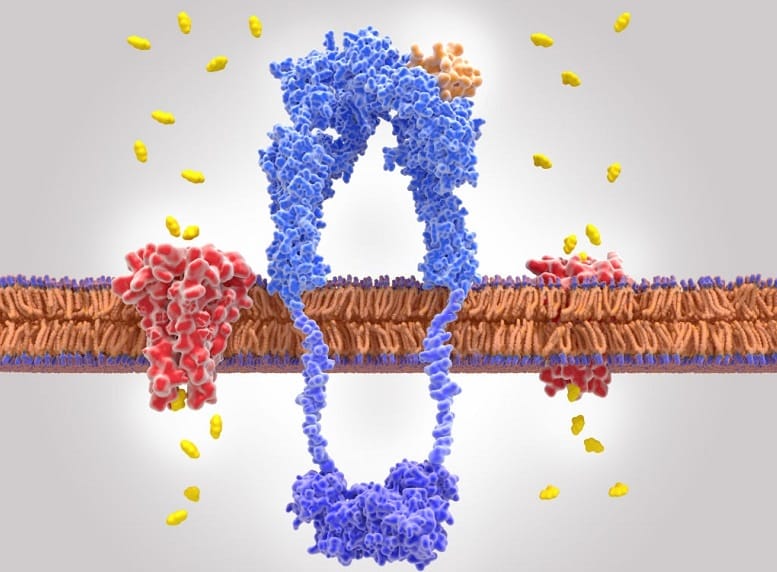Definition
Branched-chain amino acids or BCAAs, leucine, isoleucine and valine are three of the nine nutritionally essential amino acids. These three ingredients form a popular health supplement consumed primarily by sports enthusiasts, as they are believed to contribute to the synthesis of tissue muscle However, the true value of BCAA supplementation has yet to be proven.

Benefits of BCAA
The benefits of BCAAs are entirely dependent on the availability of other amino acids. within the human body. It has been suggested that the effects of BCAAs in terms of muscle mass are transient, as they compete with the protein carrier molecules needed to transport a variety of amino acids through the body. When transport proteins become saturated with high levels of branched-chain amino acids, the body becomes deficient in the aromatic amino acids, phenylalanine, tryptophan, tyrosine and histidine. As the aromatic amino acids are also precursors of thyroxine, 5-hydroxytryptophan and L-DOPA, excessive use of BCAA supplements is likely to lead to an imbalance of the metabolic system and neurotransmitters.

Benefits of BCAAs in protein synthesis
The benefits of BCAAs in protein synthesis studies are often limited to rodent trials where higher levels of BCAAs stimulate protein synthesis and inhibit protein synthesis. catabolism of proteins. In humans, this role seems to have less to do with protein synthesis and more to do with inhibiting protein catabolism or degradation.
An anabolic effect refers to the synthesis of complex molecules from smaller molecules, such as the synthesis of protein-based muscle tissue from single amino acids. A catabolic effect describes the breakdown of a molecule complex in its individual parts. Branched-chain amino acids appear to slow down catabolism. This means that, although the rate of muscle mass production does not increase with BCAA supplementation in humans, a slower degradation curve can lead to higher levels of muscle tissue under the right circumstances. Certainly, one should not ignore the fact that cellular longevity in the case of muscle may not be a positive change The younger the cellThe better it works, the better it works.
Increased muscle mass does not depend on a small selection of amino acids, but on a wide range of essential amino acids and non-essential amino acids. When the availability of an amino acid is compromised, this can affect the entire anabolic process. By supplementing a small group, one is still limited to the availability of a full range of amino acids, enzymes and transport proteins. Because of this, the positive effects of BCAAs on muscle mass are often transient and, over time, other ingredients for muscle synthesis diminish or are overtaken. In addition, the availability of amino acids in the synthesis of the muscle skeletal muscle is dependent on muscle degradation. During and immediately following a meal, amino acids are transported through the blood to muscle sites where they contribute to muscle synthesis.Once a person has stopped eating, this availability decreases rapidly. It then relies on the catabolic breakdown of older muscle cells to provide more amino acids for anabolic accumulation. Since BCAAs slow down degradation and thus reduce the available levels of free amino acids, it is possible that, in the long term, these supplements may have a negative effect on muscle production.
When the decision has been made to take BCAA supplements to increase muscle mass, ingestion should be carefully timed so that immediately prior to a high-energy workout and in combination with other essential and non-essential amino acids. In this way, competing amino acids have an equal opportunity to bind with transport proteins and use can be made of immediately available sources in the blood plasma. When this pre-training time period is respected, energy levels, muscle mass and muscle damage levels appear to be positively affected.
Benefits of BCAAs in the brain
The benefits of BCAAs in the brain coincide with competition for aromatic amino acid transporter proteins and their implications for neurotransmitter synthesis and are currently being investigated as a means of treating manic episodes. Branched-chain amino acids are a donor of nitrogenwhich means that they can help provide a positive nitrogen balance in the brain by contributing to the synthesis of excitatory glutamate and inhibitory gamma-aminobutyric acid (GABA).
As the BCAAs can cross the blood-brain barrierAt higher levels, they prevent the aromatic amino acids tryptophan, tyrosine and phenylalanine from entering the brain. Tryptophan is a precursor of serotonin and tyrosine and phenylalanine are precursors of catecholamines; the action of supplemental branched-chain amino acids therefore directly affects the synthesis and release of serotonin and catecholamines such as dopamine, norepinephrine and epinephrine. However, as in the case of most of the physiology from nervous system centralThe full role of BCAAs in the synthesis of excitatory and inhibitory neurotransmitters remains unclear. Rodents that received an excess of BCAAs had lower levels of serotonin in the brain than those that did not. caused that animals would overeat and become obese.while health forums often include queries from BCAA supplement users asking whether their experiences of low mood or mood swings may be associated with their ingestion.

BCAAs and adipose tissue
Unlike other nutritionally essential amino acids, the liver does not produce sufficient enzymes for the catabolism of leucine, isoleucine and valine. In the liver, the first enzyme, mitochondrial branched-chain aminotransferase (BCAT2), is responsible for the catabolism of BCAAs in peripheral tissue. Although research is not yet in the dark regarding the physiology behind the benefits of BCAAs, it is believed that BCAAs signal the presence of nutrients in the body and brain, help regulate protein synthesis and protein degradation, play a role in the secretion insulin secretion and may even contribute to central nervous system control mechanisms for food intake and energy balance.
It is generally accepted that muscle tissue is the main site of BCAA catabolism, but more recent studies implicate fat tissue or adipose tissue in the down-regulation of BCAA catabolism; It is possible that adipose tissue prevents the body from using the available BCAAs.. For example, research on BCAA levels in people suffering from obesity, insulin resistance, and metabolic syndrome has found a link between the presence of large amounts of fat tissue and highly circulating but uncatabolised branched-chain amino acids. After gastric bypass surgery, these circulating levels decrease, as do insulin resistance and appetite. The latter may be the result of a return to normal BCAA function, where these amino acids can once again act as nutrient signalling compounds.

Correct use of BCAA supplements
The correct use of BCAA supplements is important for maximum benefit with minimum harm. They are certainly not the muscle building miracle they are advertised to be, but a nutritional supplement. that is not yet fully understood. In addition, BCAAs are linked to tumour growth, as they provide a source of energy for cancer cells. Therefore, supplementation should be considered with great care.
A healthy and varied diet provides the body with all essential nutrients, so amino acid supplementation should be avoided, especially in those who do not engage in regular high-level physical activity.. To minimise the effect of fat tissue on BCAA performance, amino acid sources should come primarily from plant-based proteins and fish. These foods provide sufficient and balanced amounts of nutrients in the daily diet. High-fat diets in combination with BCAA supplementation can cause serious adverse health effects. One study in mice resulted in significantly higher mortality rates in rodents fed high-fat diets with supplemented BCAAs compared to those without supplementation. More importantly, none of those on high-fat, low-BCAA diets died..

BCAA supplementation, when considered suitable for use by an individual, should only be taken immediately prior to high-level physical activity so that the available levels are directly available in the blood plasma and can temporarily help to make improvements during the exercise physiology high-energy. In addition, BCAAs should be part of a mixed product of essential and non-essential amino acids in order to avoid competition and provide a complete package of ingredients. Finally, BCAA supplements should not be considered as a long-term therapy as these effects have not been sufficiently studied and may be detrimental. Branched-chain amino acid supplements should only be considered as a short-term, transient nutritional supplement.

